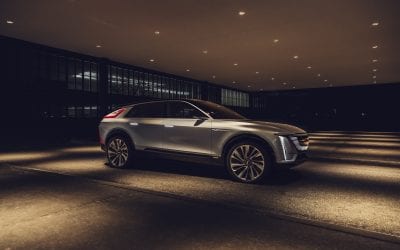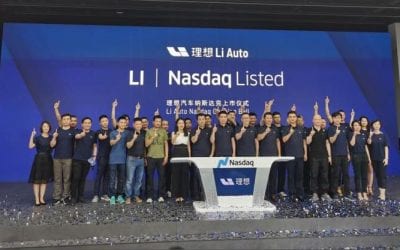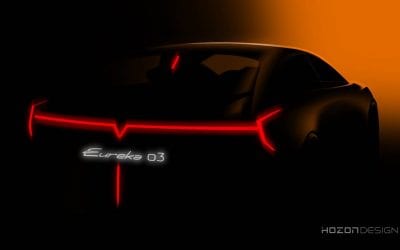Toyota forecasts that by the
year 2050 there would be hardly any combustion powered vehicles left,
down from the current 85% of car sales and that the market would consist
of hybrids, plug-in hybrids, electric and fuel cell vehicles. The
Company’s roadmap includes cutting emissions from new vehicles by 22%
from its 2010 level and 90% by 2050. To achieve this would mean the
company has to sell around 7 million gas-electric hybrid vehicles by
2020. It is no secret that the Company prefers the backing of fuel cell vehicles
rather than committing to battery electric vehicles and therefore
targets to sell at least 30,000 fuel-cell vehicles a year worldwide by
around 2020. The Compay’s Mirai is the first fuel cell vehicle
commercially produced. The Japanese
automaker announced that it would roll out a plug-in hybrid version of
the Levin exclusively for the Chinese market by 2018 and a pure electric
version of the Toyota C-HR in 2019. Production of trendsetting Prius
stopped in 2015 with an upgraded version released in 2017. Toyota's plan is to launch 10 EV models in China by 2025, in order to achieve the goal of "more than 5.5 million electric vehicle sales worldwide" by 2025. Toyota’s EV strategy is more focused in China where it established an 50/50 JV with BYD to research and develop electric vehicles. Toyota has further established battery supply agreements with BYD, CATL, GS YUASA and Toshiba. Toyota's EV-specific platform, e-TNGA, is developed in partnership with Subaru on which it can build models of different sizes from mid-size cars, CUV’s, SUV’s to large SUV’s and MPV’s.
Toyota has not been able to clearly define its EV strategy as the
Japanese automaker sticks to a largely hydrogen based strategy. Autocar
UK reported that the company’s European vice president of sales and
marketing Matt Harrison said at the Paris Auto Show earlier this month
that the company is in the discussion stage of resurrecting the MR2 as
an electric model. The MR2 was a popular mid-engined roadster from 1984
to 2007. According to Autocar, the electric MR2 could be next to a
charging station by early in the next decade.
Toyota will start renovating its Tianjin plant at the cost of $263
million in September 2018. After its completion in March 2019, the plant
will have a capacity of 110,000 PHEVs and 10,000 BEVs per annum. The
Tianjin assembly line is Toyota’s only EV plant in China. Toyota plans
to bring 2 PHEVs to market in 2019, a Corolla and Levin and a pure
electric C-HR in 2020.
Toyota
revealed the second iteration of its Class 8 Fuel Cell Electric Truck
at the Center for Automotive Research (CAR) Management Briefing Seminar.
The truck named “Beta” is the second vehicle from the Japanese
automakers Project Portal started in April 2017. “Beta” offers an
increased the range of the first vehicle “Alpha” by 100 miles bringing
it to 300 miles per fill. To date “Alpha” has completed 10,000 testing
miles in real-world conditions driving around the Ports of Long Beach
and Los Angeles. “Beta” has the same specs as “Alpha”, providing
670-plus horsepower and 1,325 pound-feet of torque from two Mirai fuel
cell stacks and a 12kWh battery. The announcement came at the same time as a
hydrogen shortage in California resulting in dealers offering to
compensate Toyota Mirai owners for rental vehicles. Twitter user @ferio_252 tweeted
a sign at one of the 33 hydrogen fueling stations built by Toyota,
Hyundai, and Honda. The shortage is due to supply constraints at
chemical provider Air Products. The sign read “Be advised: Hydrogen
delivery issues everywhere. Don’t take chances, top off frequently.
Toyota hotline says dealers know, will comp you for rental car.” Toyota is still doubling down on Fuel Cell
technology, leaving it exposed to bat for the technology with
infrastructure investment. Hydrogen fuel-stations cost upwards of a one
million dollars to build while a charging station around $5,000. A
further challenge with hydrogen is that it is highly combustible
creating a risk to transporters and drivers in extreme situations. What
would you rather drive? A dirty ICE vehicle with a fire hazard, a clean
EV with a fire hazard or a clean FCEV with an explosive hazard?
Toyota
announced that it sold 1.5 million electrified vehicles in 2017, up 8%
from 2016. The figure is however misleading as only 51,000 is
attributable to the Prius PHEV, the only EV according to our definition
off electric vehicles. A further 2,700 units are attributed to the Mirai
FCEV. Note the lack of pure electric EVs.
Toyota, which doesn’t see a significant change towards EV adoption in the next decade acquired a 15% stake in Australian lithium miner Orocobre for an approximate AUD292 million (USD232 million) through its subsidiary Toyota Tsusho. Toyota is not the first automaker to buy into lithium mining to secure supply. In 2017 the Chinese Great Wall Motors acquired a stake in another Australian lithium miner Pilbara Minerals.
Four more companies joined the Toyota/Mazda/Denso JV, EV C.A. Spirit Co. Suzuki Motor Corp., Subaru
Corp., Daihatsu Motor Co. and Hino Motors Ltd. will each contribute
engineers to the project but not take any equity in the company.
Toyota also
clarified its NEV plans for China this week. To date, the company only
announced the introduction of two PHEV models for the Chinese market,
namely the Corolla and Levin which is expected in 2018. In a press
release this week Toyota announced that it would bring a new EV under
its brand to China in 2020. It announced further that it would expand
its Fuel Cell study in China to include commercial vehicles such as buses.
Compared to Tesla, GM and VW’s plans Toyota’s seem very tame and
summarises the claim by Toyota’s Chairman to German publication Der
Spiegel this week. Mr. Takeshi Uchiyamada was quoted
saying “Battery-powered cars with a long range are very expensive, and
it takes a long time to charge them, such cars do not fit in our
program.” He went further saying “Tesla is not our enemy and not our
role model, I think it’s the German manufacturers that rather see Tesla as a competitor.”
Toyota and Suzuki this week signed a memorandum of understanding for the introduction of EVs into India.
According to the MOU Suzuki will produce EVs for the Indian market and
supply some to Toyota, while Toyota will provide technical support. The
MOU is signed with the backdrop of the Indian Governments “Made in
India” and aggressive EV programs.
Automotive News reported on Toyota’s
Fine Comfort Ride concept first introduced at the Tokyo Auto Show
earlier this month. According to the Japanese carmakers Chief Engineer,
Takao Sato. The plastic-aluminum hub encircled by a rubber band could
potentially shave off 30% (11 pounds) from a tire’s weight by 2025 on
electric and hydrogen fuel-cell vehicles. Airless tires by Michelin and
Bridgestone is already available in golf-carts, lawnmowers and
construction equipment. Pricing is not expected to be the prohibitive
factor as costs already compare with current tires. Overcoming rolling
resistance (friction) is the biggest hurdle the company is expected to
cross. The plastic-aluminum tires have a friction deficit of between 10
and 20% compared to existing pneumatic tires which is unacceptable for
the drivetrain platforms needing every extra mile out of the power
source such as EVs.
The Tokyo Auto Show will be hosted from the
27th of October to the 5th of November, and we can expect a bunch of
combustion and electric concept vehicles from regional producers with
the least amount of production electric vehicles. Hopefully, we will see
an auto show in Japan in the near future brimming with production-ready
electric vehicles, in the meantime here are some of the
concept electric and autonomous vehicles which would be displayed at the
2017 event. Toyota
will display its vision for the future, the Concept-i Series, which
includes the Concept-i four-wheel first showcased at the 2017 CES in
Vegas. Toyota will introduce two more members of the Concept i-series
family, the Concept-i RIDE city car, and the Concept-i WALK, an
autonomous 3-wheeler which will lead to less walking and need for legs.
In all fairness, Toyota identified the ride-sharing services at
sightseeing spots as one of the potential uses for the i-WALK,
The Toyota Concept-i series combines
technologies that “LEARN,” “PROTECT” and “INSPIRE” and aims to start
roadtesting some of these elements in vehicles from 2020 onwards. All
three vehicles are electrified with ranges of 300km, 150km, and 20km
respectively.
The much-anticipated reveal of Tesla‘s Semi truck this month has been pushed back to November 16 as the company refocusses on clearing bottlenecks in the Model 3
production. This is the second delay of the Semi which was supposed to
be unveiled in September. According to a tweet by Elon, there are no
issues with the Semi itself causing the delay. Although Elon is known
for missing ambitious deadlines, he is forgiven as the result never
disappoints. As we wait for Tesla to finally unveil its
electric truck other automakers this week also announced their
intentions to bring alternative fuelled trucks to the market by 2020. In
a press release, Toyota
announced that it is starting testing its hydrogen fuel cell truck in
Tesla’s backyard. The FCEV truck, known as “Project Portal” will
be undergoing testing between the Port of Los Angeles, Long Beach
terminals and the surrounding rail yards and warehouses. The class 8
load truck generates more than 670 horsepower and 1,325 lb.ft of torque
from a relatively small 12kWh battery and two Mirai
fuel cell stacks. The concept’s gross combined weight capacity is
80,000 lbs., and its estimated driving range is more than 200 miles per
fill, which would be the daily test distance at the LA Port.
According to Automotive News Toyota confirmed its commitment to hybrid technologies, staying the course to keep electric vehicles as a sideline development.
A Reuters report lifted the veil on Toyota’s electric vehicle plans further this week. The Reuters report claims the Japanese automaker is developing a new electric vehicle platform, based on solid-state battery technology
to enter the market in 2022. The advantage of solid state battery
technology is that it addresses range and charging shortcomings of
current lithium technology. A solid-state battery can be charged in
only a couple of minutes and has more storage capacity for longer range.
Toyota, which has been lagging in the EV race is set to enter the EV market in China
from 2019 with a mass market SUV based on the C-HR SUV. The C-HR EV
will be developed using current lithium technology. Other
automakers pursuing solid-state batteries includes BMW who has set a 10-year plan to bring solid-state EVs to market.
Toyota confirmed this weekend that it divested from Tesla
as it exited the co-operating agreement the companies had on electric
vehicle technology. Toyota acquired 3.15% in Tesla in 2010 for $40.5
million, a stake which would have been worth $1.75 billion at Friday’s
close. According to the Japan
Times Toyota announced that the sale of the stake, which happened in
trances between October 2014 and the end of 2016, is “a part of a
regular review of business alliances.” The partnership resulted in the
development of an electric Toyota RAV 4, which was abandoned as the company changed course away from EVs to hydrogen fuel cell technologies.
Toyota still has not completely put its full weight behind electric vehicles is it continues pursuing Hydrogen Fuel Cell (HFC) technology. The Japanese
automaker this week announced that it signed a Memorandum of
Understanding with ten companies to jointly develop 300 HFC stations of
the next 10 years in the country. Even though Toyota pioneered the first
mass-market Plug-in Hybrid the company forsook the lead it had on the
technology for a hydrogen future. Last year the company admitted that
electric vehicles have some relevance by creating a new division to
build its first pure electric vehicle. The CEO, Akio Toyoda personally
took leadership of the division but the company has not changed its
strategy away from the HFC path with it sees as the relevant technology
from 2025. The HFC strategy is in conflict with most recent
analysis which sees electric vehicles becoming the dominant technology
from 2025, some forecasts this week even says it will completely replace
combustion engines.
Although light
on new commercial electric vehicles the Geneva Motor Show this week
offered some great eye candy in the form of new concept vehicles, which
included: Nissan announced the unveiling of the new version of its popular Leaf EV
expected in September, with commercial sales shortly after that. The
Leaf is expected to have a range of 200 miles and some autonomous
driving ability through its ProPilot system.
Techrules from China unveiled their four wheels three seater production sportscar, the Techrules REn, which features range extender technology
More signs that Toyota
its shifting strategy in favor of electric vehicle’s, away from its
previous skepticism of the technology, emerged this week when Reuters reported
that the automaker appointed its, President Akio Toyoda, who is also
the grandson of its founder, to oversee the company’s newly formed
electric vehicle division. Other personnel changes to the new unit
include the chief engineer of the Prius,
Koji Toyoshima, as the head of the units engineering team. Toyota’s
strategy is to develop EV’s for short distance commute while developing
hydrogen vehicles for longer distances.
Reuters reported things might be changing at Toyota as the company announced that it cracked safety issues relate to the volatility of lithium-ion technology,
signaling a change in the automaker’s aversion to the technology.
Although being a trendsetter in the plug-in hybrid vehicle space with
the Prius,
the company has mainly pursued hydrogen as its preferred technology.
Toyota made the breakthrough with its battery technology partner
Panasonic and presented an opportunity for the carmaker to enter the
electric vehicle market at this late stage.

Toyota Electric Vehicles
Toyota Pure Electric Models
Toyota Fuel Cell Electric Models
Future Toyota Electric vehicles
Toyota Electric Car Strategy in the news
Week 44 2018 Toyota MR2 ressurection

Week 32 2018 Toyota renovating Tianjin plant to produce EVs
Week 31 2018 Toyota is doubling down on FCEV.

Week 6 2018 Toyota 2017 EV sales announced
Week 3 2018 Toyota buys into lithium mine

Week 1 2018 More automakers joins the Toyota/Mazda EV project
Week 46 2017 Toyota clarifies EV strategy for China

Week 46 2017 Suzuki and Toyota signs MOU for Indian market
Week 44 2017 Toyota considering airless tires

Week 42 2017 Toyota at the Tokyo Auto Show
Toyota Concept Vehicles at the Tokyo Auto Show 2017

Week 41 2017 Toyota to test semi truck in LA

Week 38 2017 Toyota will not focus on EVs as the primary new development

Week 30 2017 Toyota pursuing solid state battery technology
Week 22 2017 Toyota confirms it sold its historical Tesla stake
Week 20 2017 Toyota still not fully behind electric vehicles
Week 10 2017 i-Tril unveiled
2017 Week 8 Geneva Auto Show Line-up
2016 Week 48 Toyota change strategy on electric vehicles
2016 Week 44 Toyota improve lithium battery
Top 5 EV News Week 32 2020
Top 5 EV News Week 32 2020 | Cadillac Lyriq unveiled. Yet another Chinese EV startup IPO. Three new EV models launched this week.
Top 5 EV News Week 31 2020
Top 5 EV News Week 31 2020 | Successful IPO for CHJ Auto, Kandi finally enters the USA, Mitsubishi pays the cost for failing EV strategy.
Top 5 EV News Week 30 2020
Top 5 EV News Week 30 2020 | Chengdu Auto Show, Hozon Neta IPO, VW invest in China, eVito Tourer for sale



















